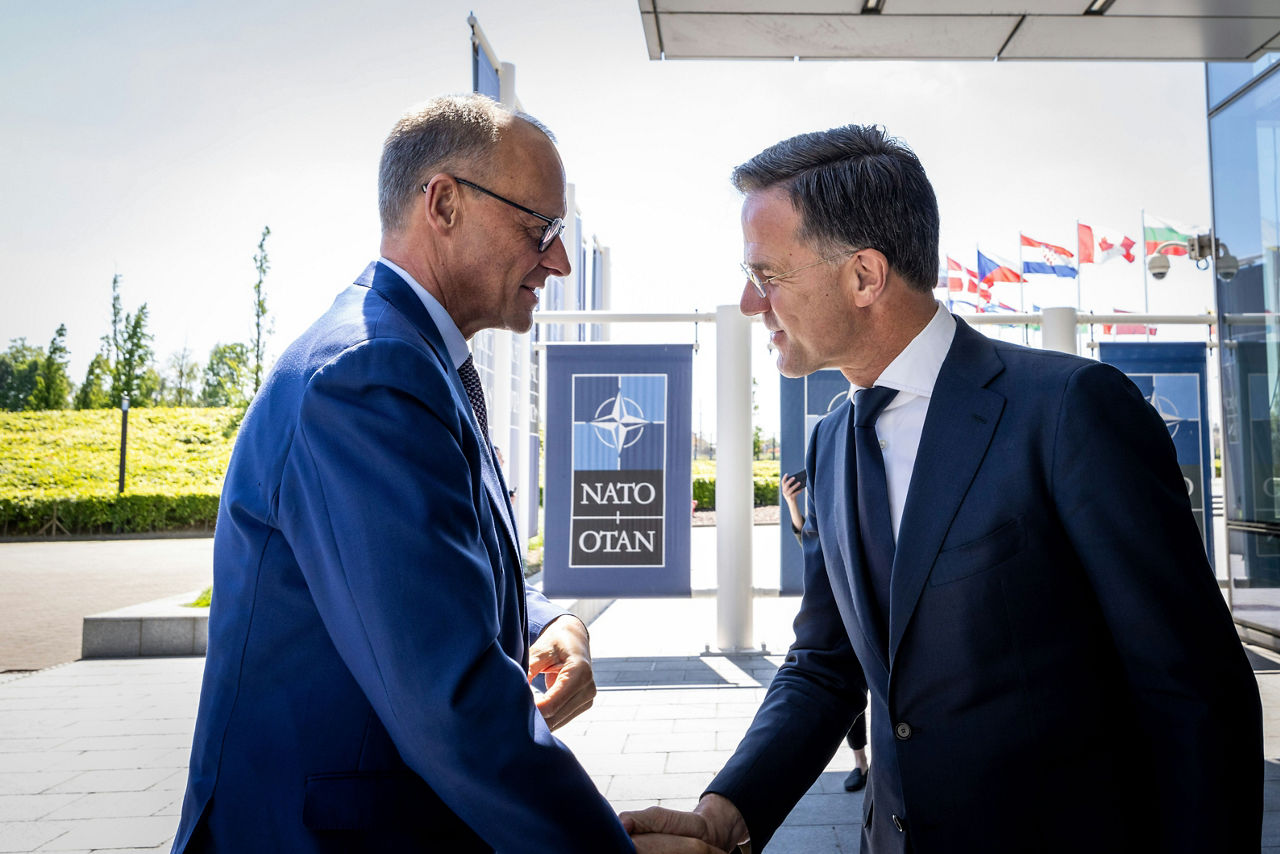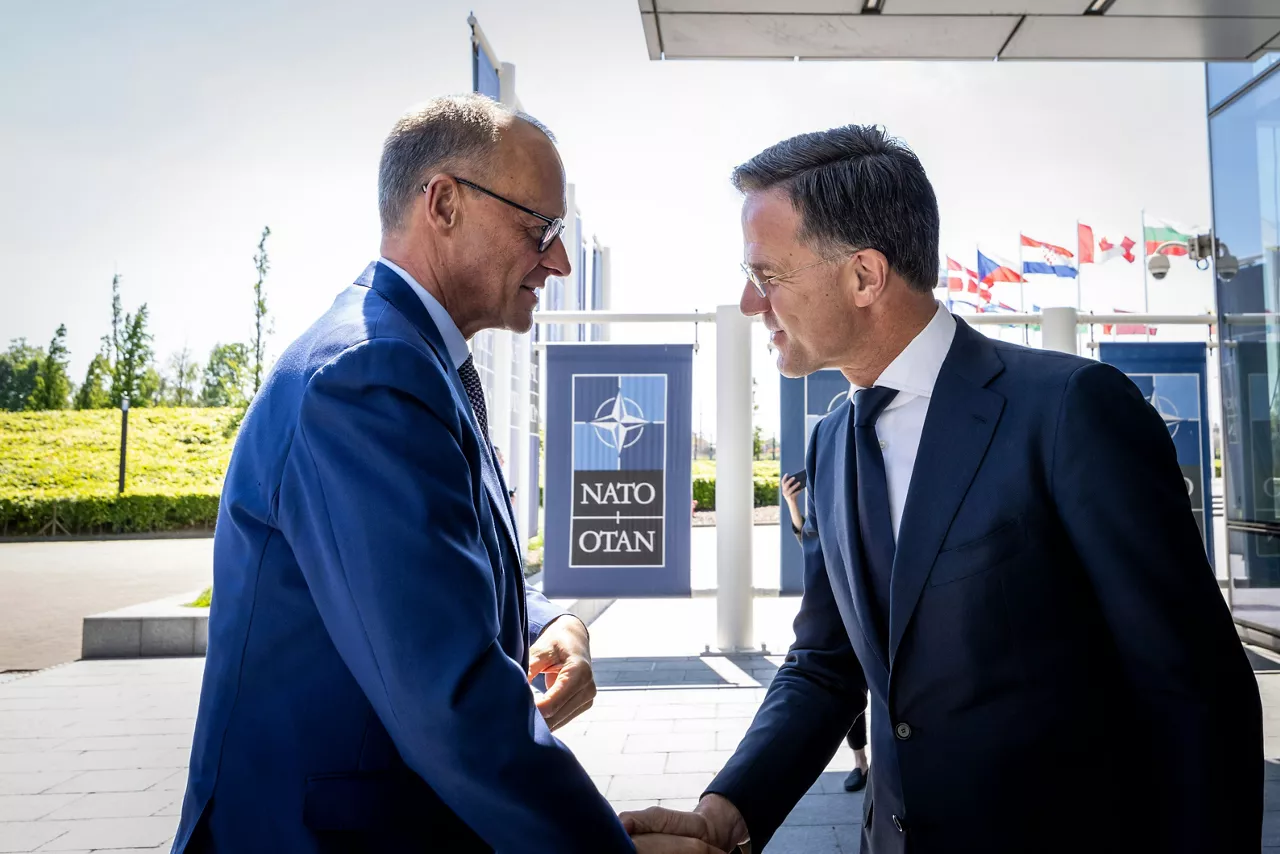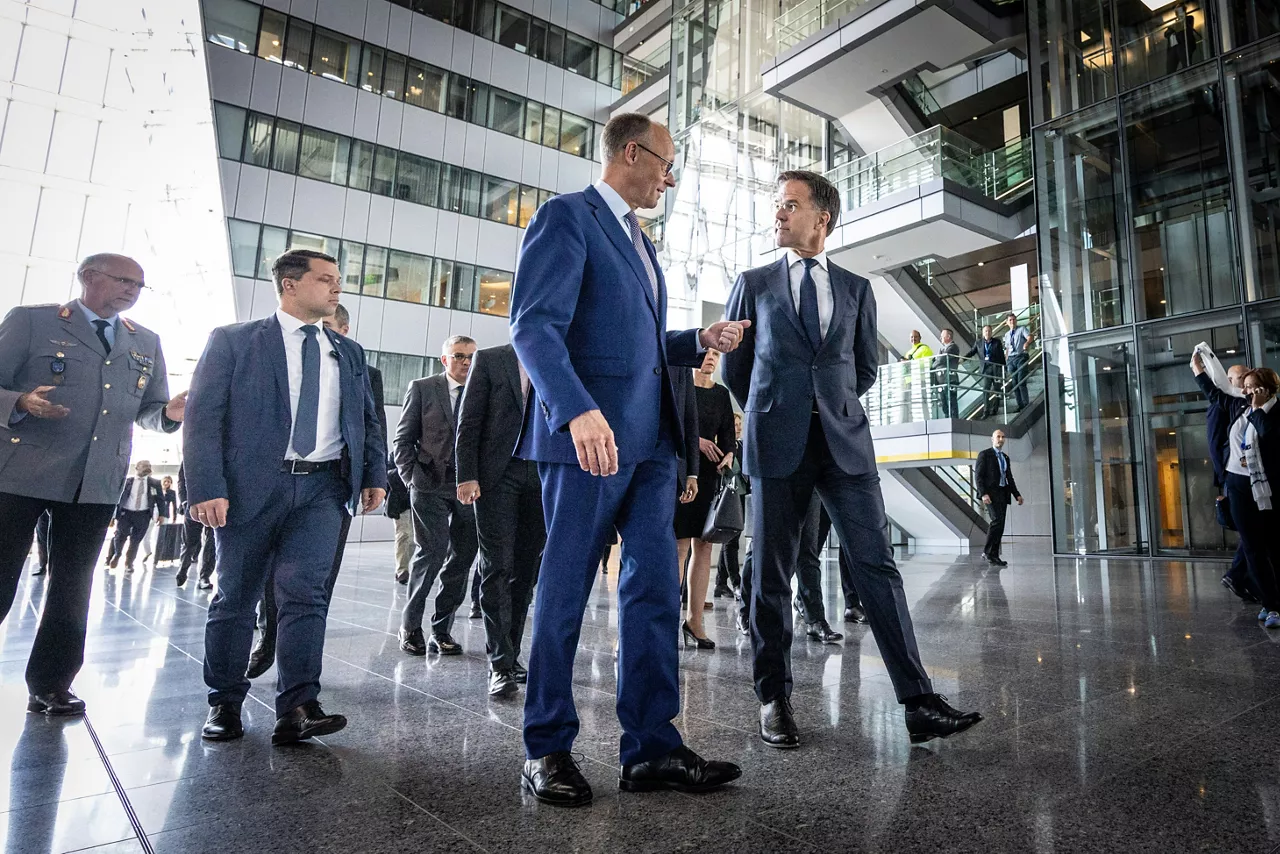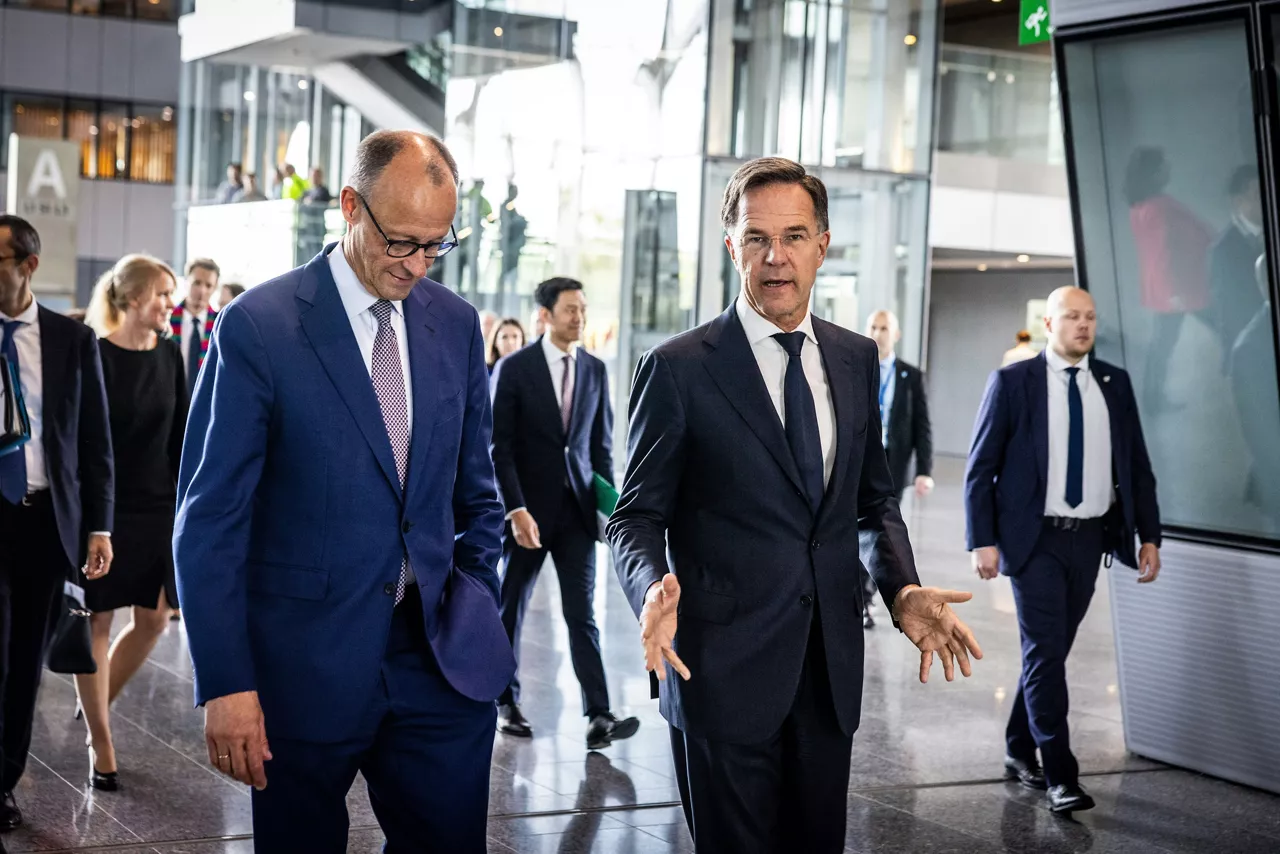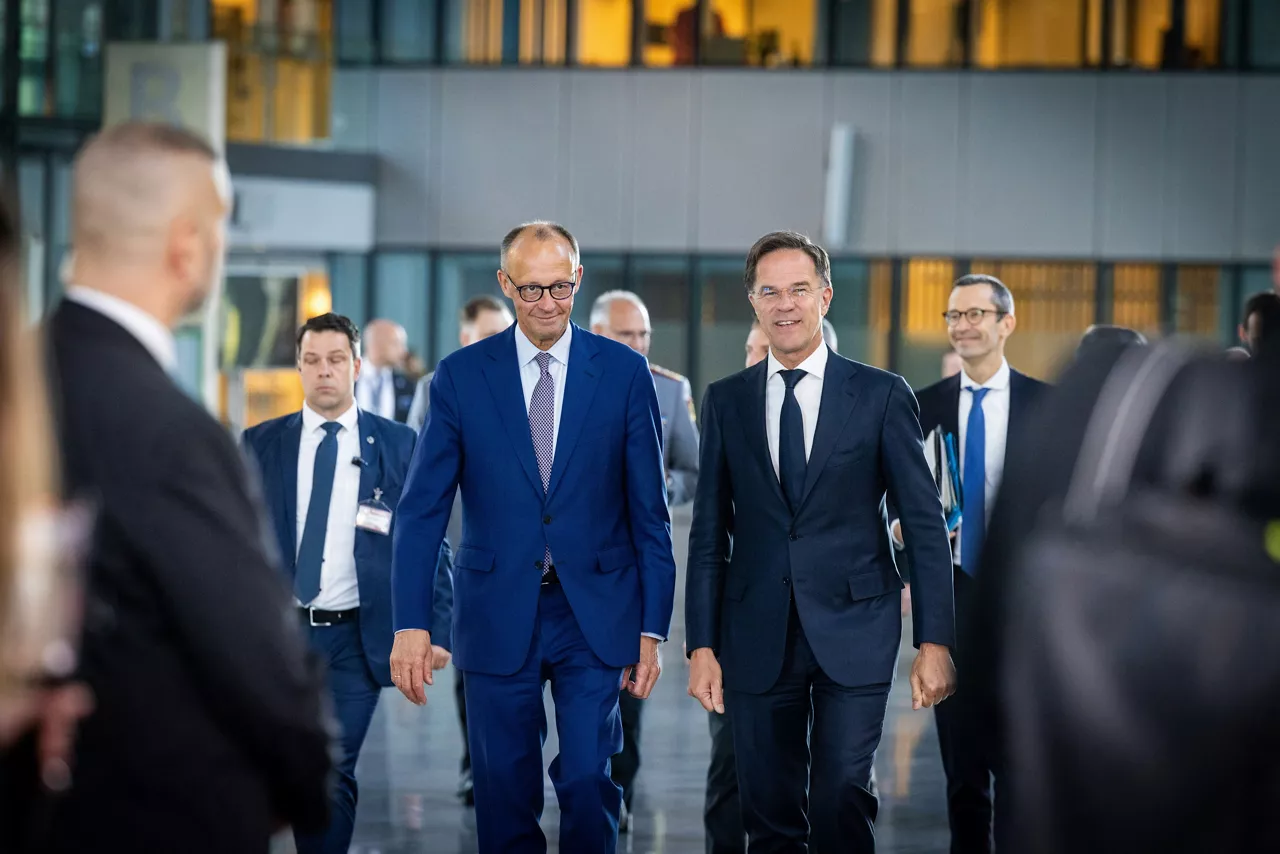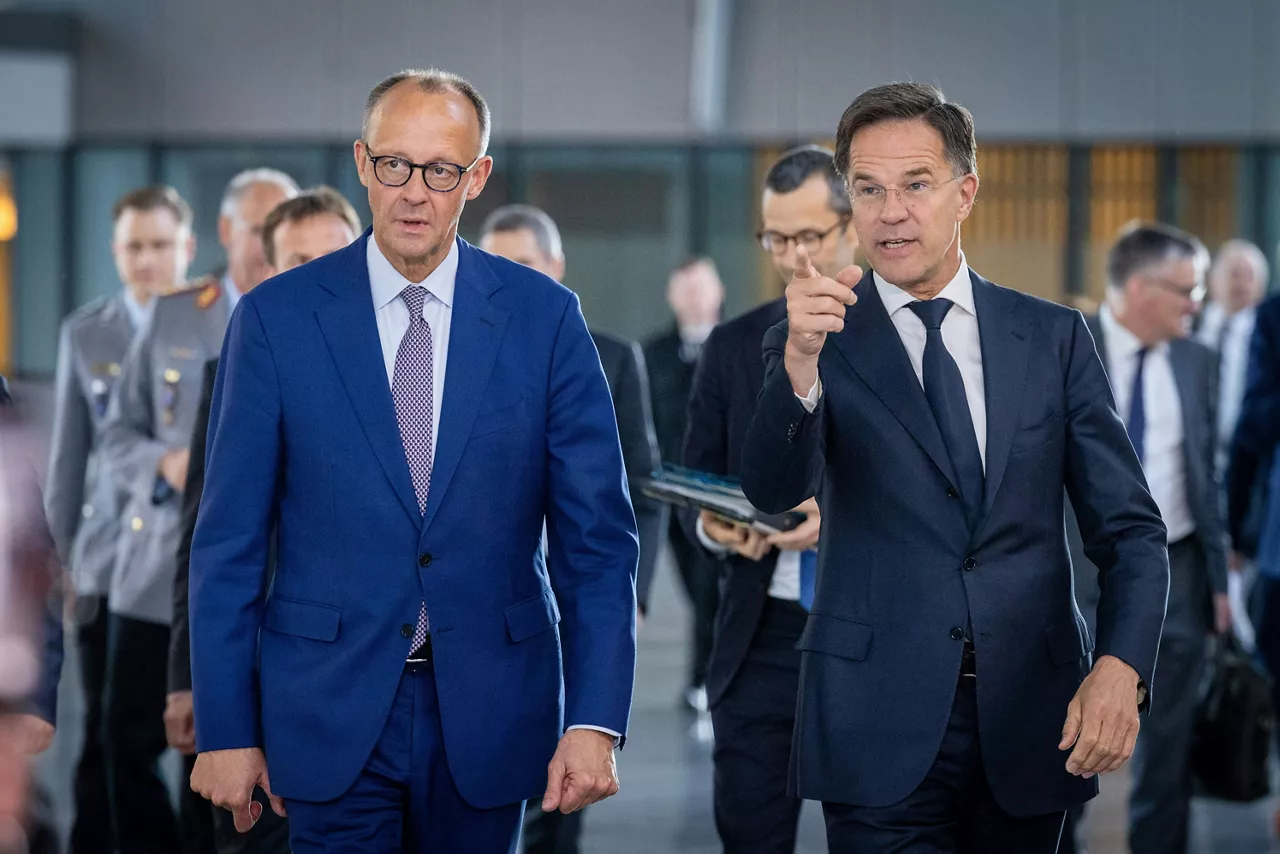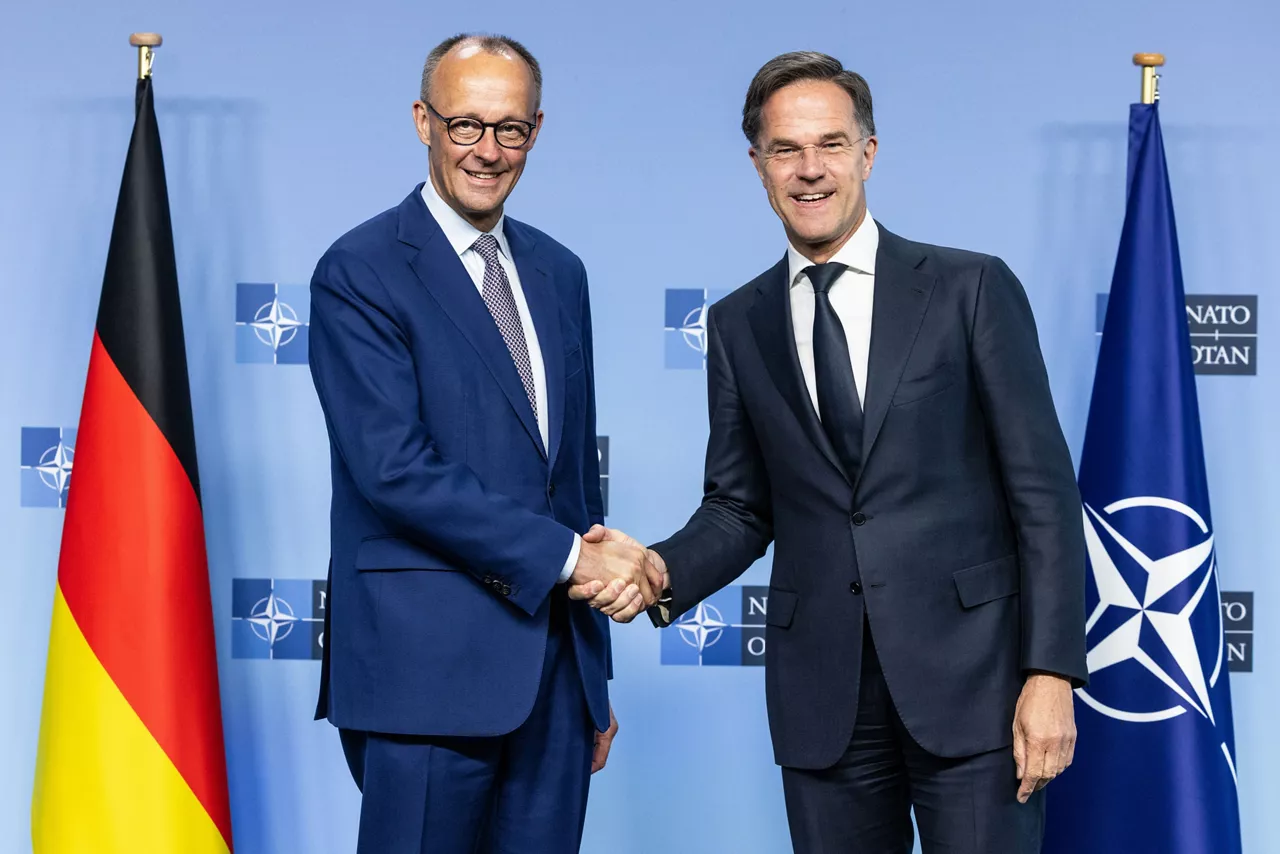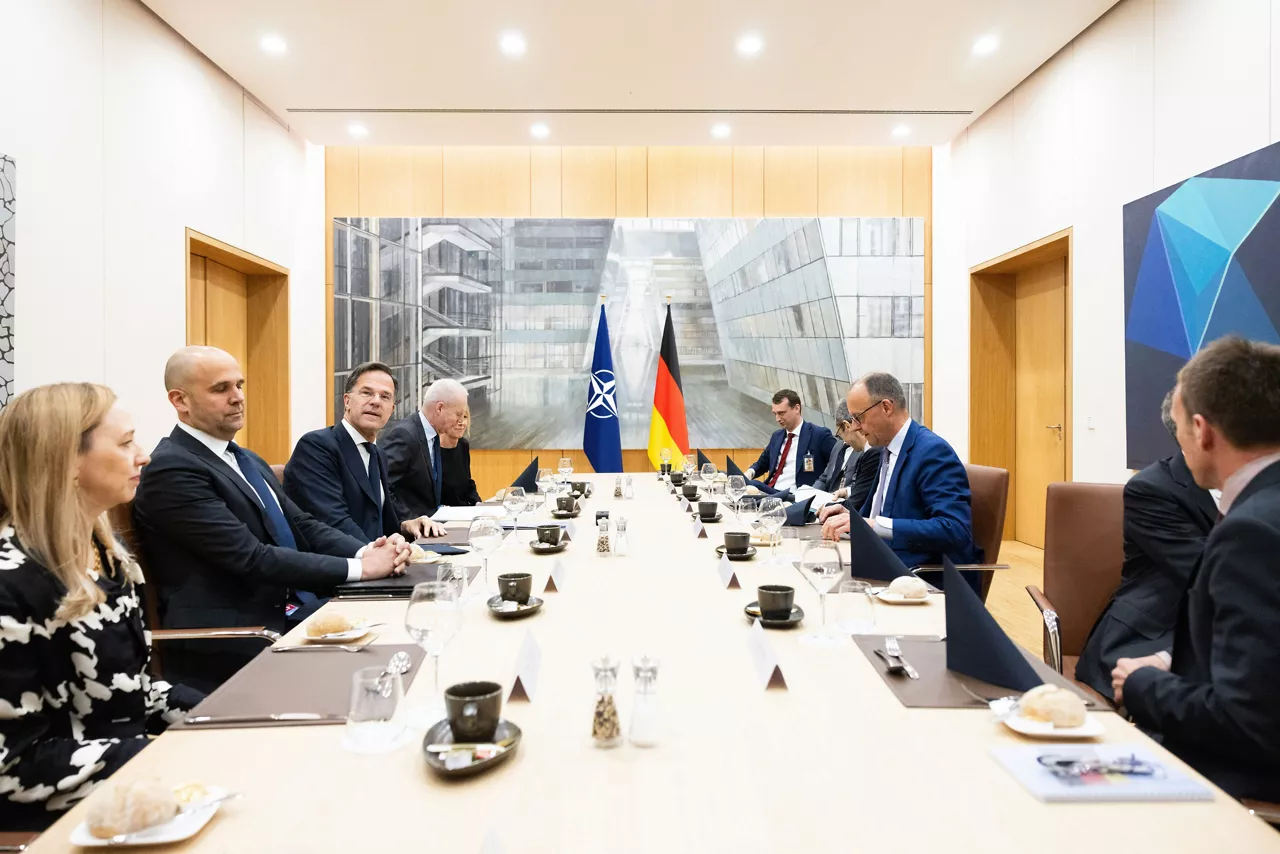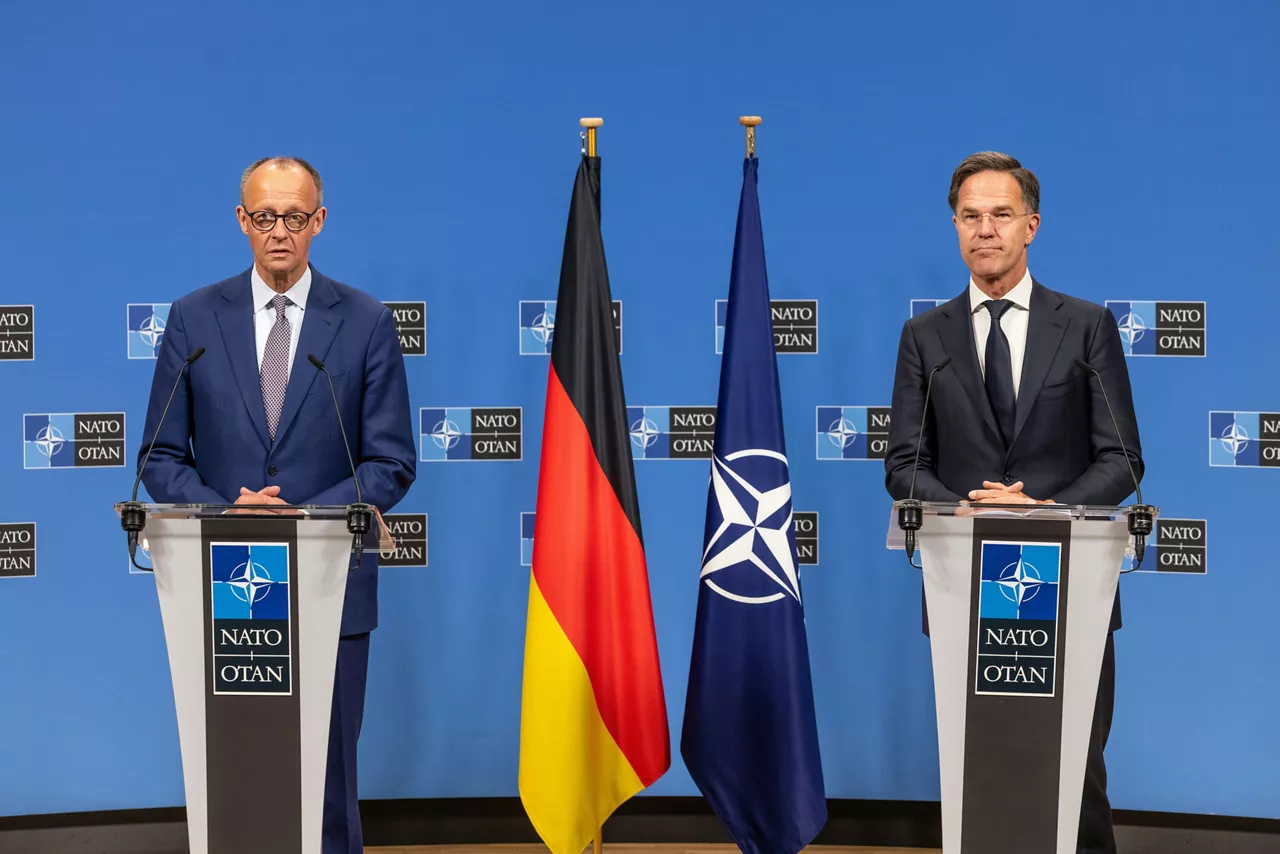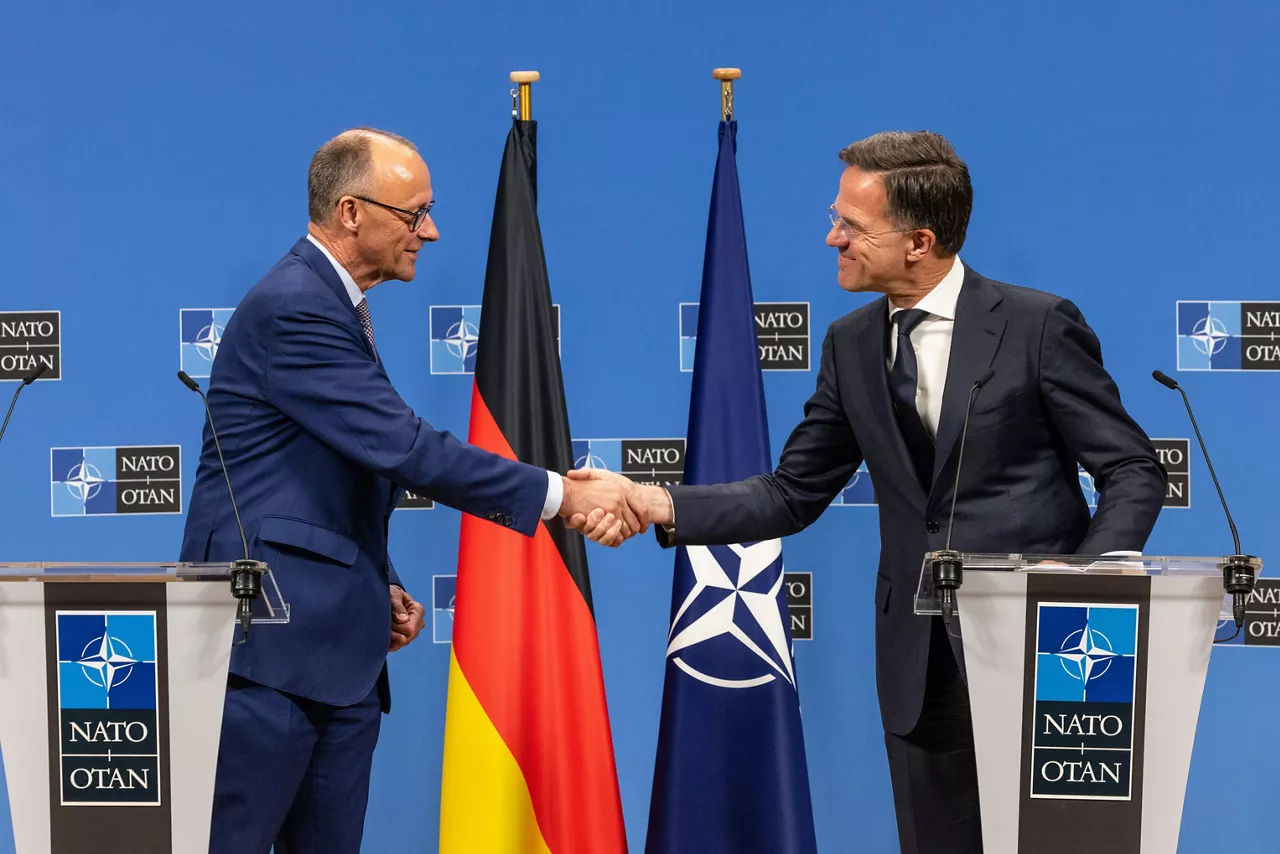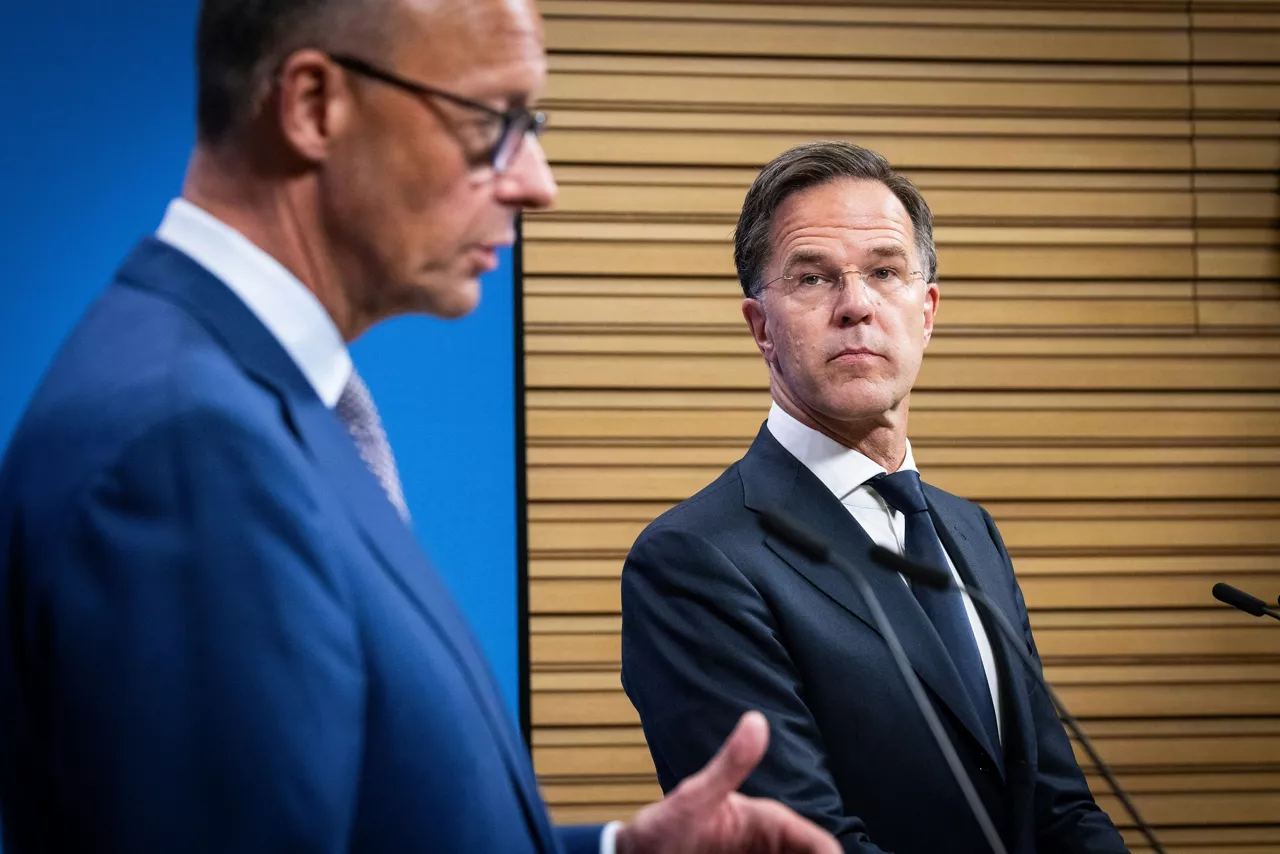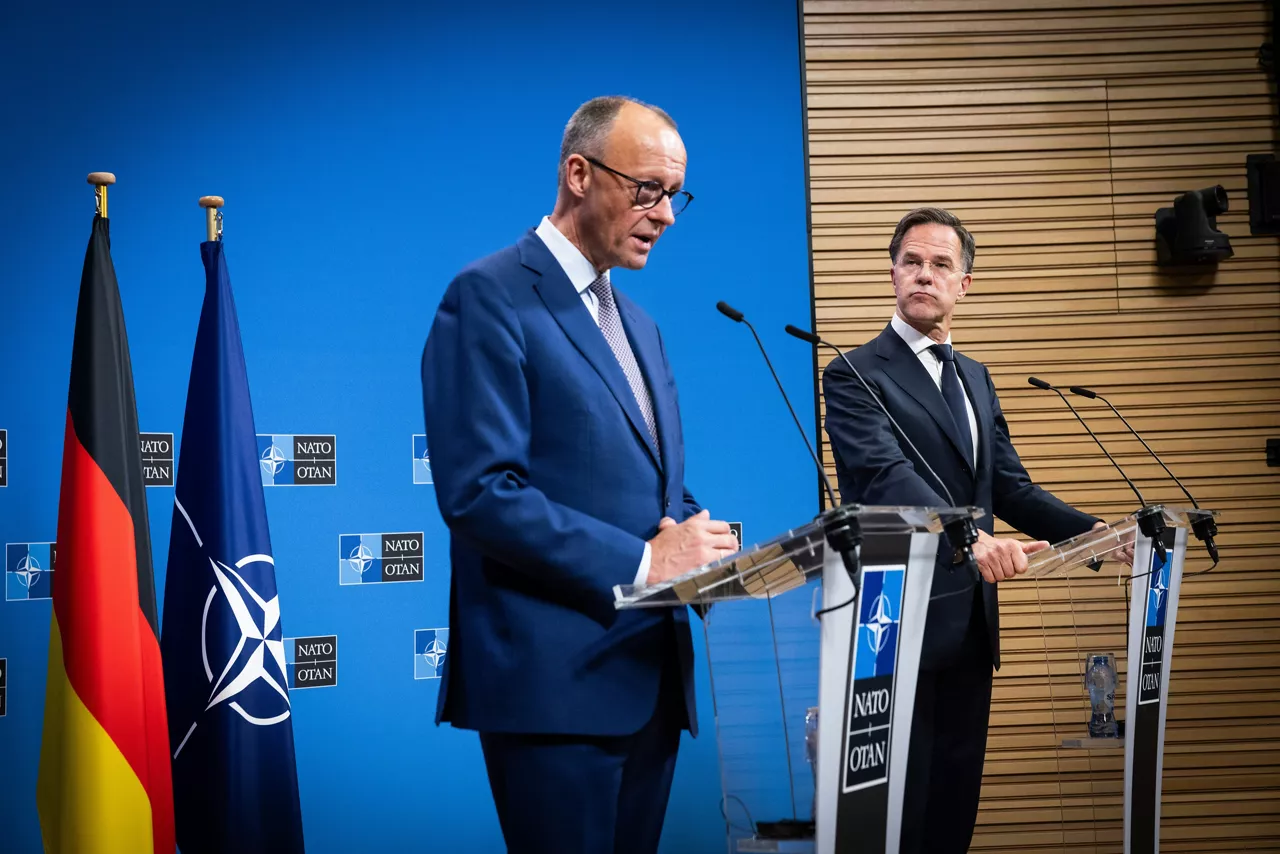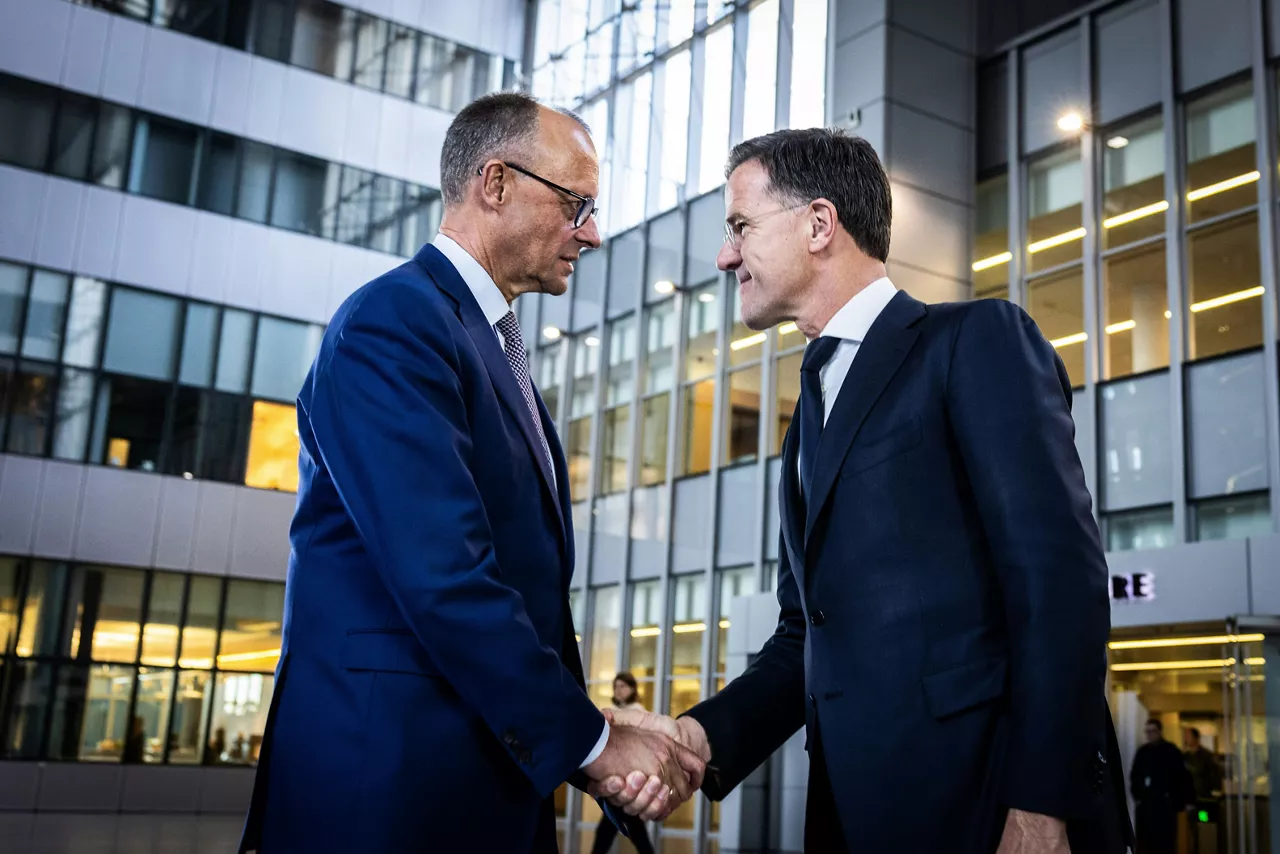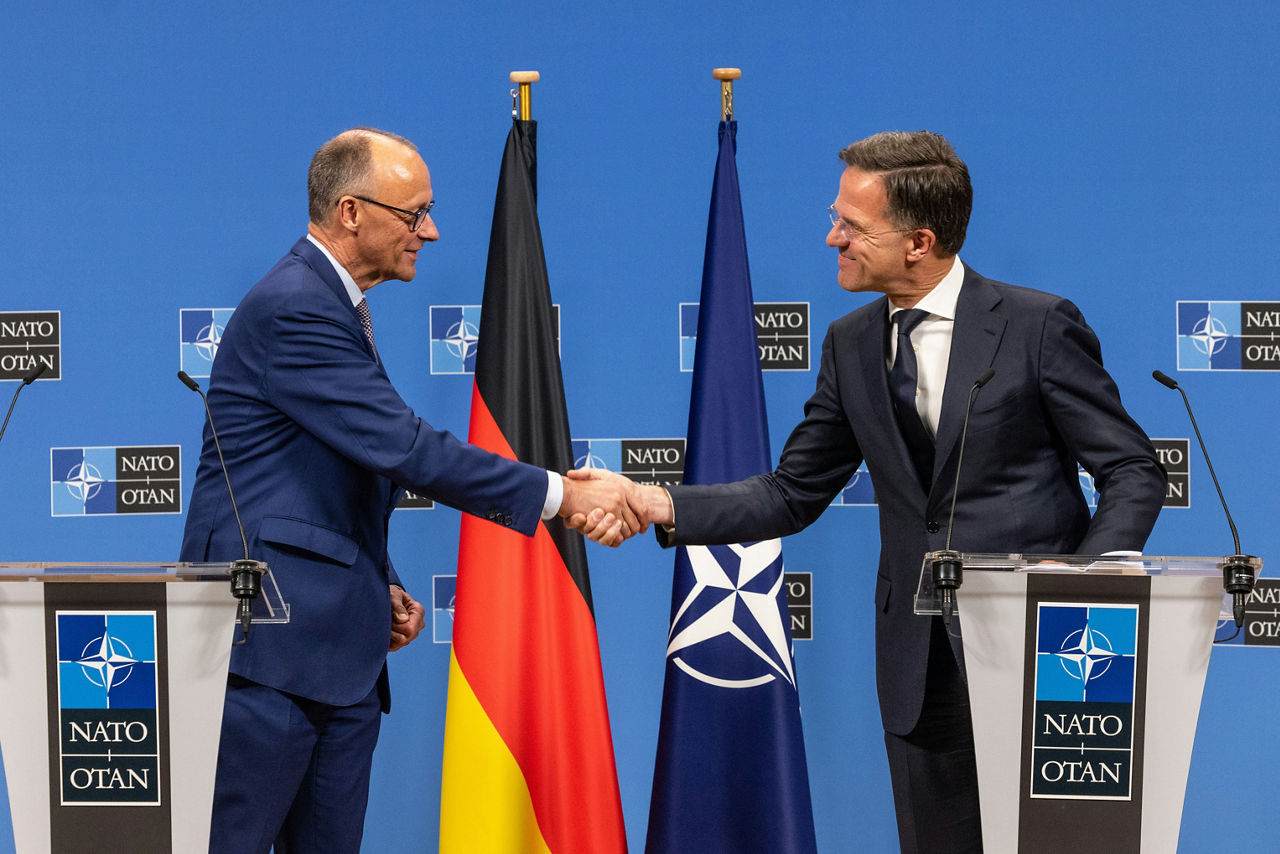Download NATO’s broadcast-quality video content free of charge

NATO MULTIMEDIA ACCOUNT
Access NATO’s broadcast-quality video content free of charge

Check your inbox and enter verification code
You have successfully created your account
From now on you can download videos from our website
Subscribe to our newsletter
If you would also like to subscribe to the newsletter and receive our latest updates, click on the button below.
Enter the email address you registered with and we will send you a code to reset your password.
Didn't receive a code? Send new Code
The password must be at least 12 characters long, no spaces, include upper/lowercase letters, numbers and symbols.
Your password has been updated
Click the button to return to the page you were on and log in with your new password.
Joint press conference
with NATO Secretary General Mark Rutte and the Chancellor of Germany, Friedrich Merz
09 May 2025
5 MIN READ
(As delivered)
Herr Bundeskanzler, dear Friedrich.
Congratulations on your election as Federal Chancellor.
It is an honour and a pleasure to welcome you to NATO headquarters just a few days after you took office.
Germany is a leading power in Europe.
And you play a crucial role within NATO.
Your contributions to our collective security are substantial.
Germany leads our forward land forces in Lithuania – which you are building up to a full brigade.
You conduct air patrols over Baltic skies, and provide maritime support for key supply routes and critical infrastructure in the Baltic Sea.
Germany is also the largest European contributor of military aid to Ukraine.
Helping the Ukrainian people defend their freedom and their sovereignty.
Your commitment to our shared security matters for Germany. It matters for Europe, and for the whole of this Alliance.
Just last week, I had the pleasure of hosting President Steinmeier and Minister Pistorius here to celebrate 70 years of Germany’s membership in NATO.A remarkable milestone that reflects your dedication. And shows that with strong will and leadership we can change things for the better.
You have already demonstrated remarkable leadership even before taking office, thanks to changes to the debt brake allowing for higher defence spending.
A truly historic agreement.
This kind of decisive action is exactly what we need to build a stronger, fairer and more lethal NATO.
We need to ensure our militaries have the capabilities they need to deter and defend – and keep our one billion people safe.
So together we will work to increase defence spending, and also enhance the defence industrial capacity on both sides of the Atlantic.
Strengthening our deterrence and defence, and sending a clear signal that we are not only united, not only resolved, but wholly capable of providing robust collective defence in the face of any challenge.
This will be the main focus of our Summit in The Hague next month.
So we have a lot to do.
But I know I can count on your leadership.
And Germany can count on a strong NATO.
So again, congratulations!
The floor is yours.
Thomas Gutschker (Frankfurter Allgemeine Zeitung)
If I may, a question to the Secretary General. I would like you to explain to us what kind of a challenge it means for NATO member states to actually reach the goal that you have proposed to them. Not just the 3.5% but also the additional 1.5% for infrastructure. Is this basically just a math exam, so upscaling what you already do? Or does it mean real, new investments, and can you quantify that?
NATO Secretary General Mark Rutte
I'm not going to confirm the numbers you are just putting out. So I know there are many rumours floating around. It's true that we are having internal discussions now within NATO, what will be the best way to make sure that we can fulfil all our tasks as NATO going forth in the future, including given the fact that we acknowledge the long-term threat Russia is posing. So it will mean an absolutely increase in defence spending. So I'm not going to confirm the figures. Obviously, when you increase defence spending, you have to think about all the enabling tasks which are connected to defence. And yes, I've always said this, if we stick at the 2%, we cannot defend ourselves. So we have to really increase defence spending.
But that is not enough. We also have to build a defence industrial base. They go hand in hand. Because for a strong deterrence and defence, we can defend ourselves now. But to be able in five years’ time to also be able to defend ourselves and to keep the deterrence and defence at the level we need, we need only to spend much more, but also to build that defence industrial base across the Atlantic, across the whole Euro-Atlantic area, including the United States and Canada, and all the European countries in NATO. It's crucial. We need to do both. I said it before. The Russians are producing in three months in ammunition, what the whole of NATO, which is 25 times bigger than Russia, in terms of the overall economy. We produce in one year in ammunition, what they produce in three months. So that's not sustainable. So this both, spending and more production.
Ansgar Haase (Deutsche Presse-Agentur)
Do you hope that Germany now will join the group of countries that really support a NATO perspective for Ukraine? And do you think that this could lead to progress on this issue? Thank you.
NATO Secretary General
The whole of NATO agrees on the irreversible path through Ukraine into NATO, but we never agreed that as part of a peace deal, there would be guaranteed NATO membership for Ukraine. That was never agreed. But in the long term, NATO Allies has said yes, there will be this perspective of NATO membership. That's for the longer term, not for the peace negotiations ongoing at the moment. And as I said before, I'm happy that the American President and glad that he broke the deadlock, that progress is being made. And I completely agree with the German Chancellor on the 30-day cease fire, and that the ball is now clearly in Russia's court, on der Seite Russia’s, as I think you put it. That's exactly true. And at the moment, there is a close cooperation between NATO and Ukraine. We have to command in Wiesbaden, which is organising the military aid into Ukraine. We organise together and jointly the training for the Ukrainian Armed Forces. We are capturing all the lessons, which we are gathering in Ukraine together with Ukrainians in our centre in Poland. And so there is a lot happening at the moment.
Related assets
NATO Secretary General Mark Rutte meets with Friedrich Merz, Chancellor of Germany
NATO Secretary General Mark Rutte meets with Friedrich Merz, Chancellor of Germany
NATO Secretary General Mark Rutte meets with Friedrich Merz, Chancellor of Germany
NATO Secretary General Mark Rutte meets with Friedrich Merz, Chancellor of Germany
NATO Secretary General Mark Rutte meets with Friedrich Merz, Chancellor of Germany
NATO Secretary General Mark Rutte meets with Friedrich Merz, Chancellor of Germany
NATO Secretary General Mark Rutte meets with Friedrich Merz, Chancellor of Germany
NATO Secretary General Mark Rutte meets with Friedrich Merz, Chancellor of Germany
NATO Secretary General Mark Rutte meets with Friedrich Merz, Chancellor of Germany
NATO Secretary General Mark Rutte meets with Friedrich Merz, Chancellor of Germany
NATO Secretary General Mark Rutte meets with Friedrich Merz, Chancellor of Germany
NATO Secretary General Mark Rutte meets with Friedrich Merz, Chancellor of Germany
GALLERIES
German Chancellor visits NATO



German Chancellor visits NATO
NATO Secretary General meets with German Federal Chancellor
Usage rights
CLOSE
This media asset is free for editorial broadcast, print, online and radio use. It is restricted for use for other purposes.
German Chancellor visits NATO
Joint press conference by the NATO Secretary General and the German Federal Chancellor
Usage rights
CLOSE
This media asset is free for editorial broadcast, print, online and radio use. It is restricted for use for other purposes.
Usage rights
CLOSE
This media asset is free for editorial broadcast, print, online and radio use. It is restricted for use for other purposes.
TITLE
DATE
DURATION
Joint press conference by the Secretary General and the Federal Chancellor of Germany
Joint press conference by the Secretary General and the Federal Chancellor of Germany
Joint press conference by the Secretary General and the Federal Chancellor of Germany
Joint press conference with NATO Secretary General Mark Rutte and the Chancellor of Germany, Friedrich Merz
Related content
/

